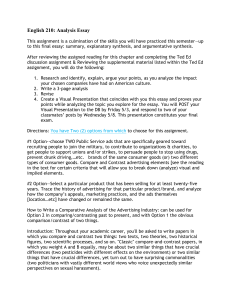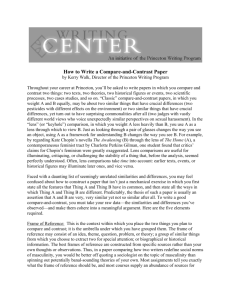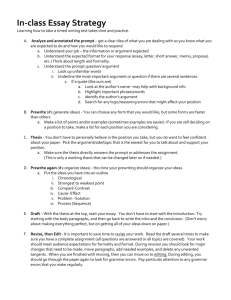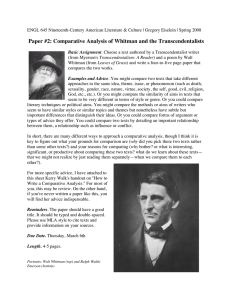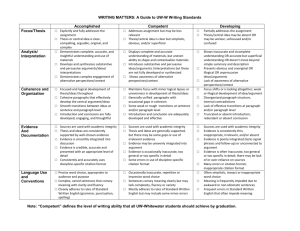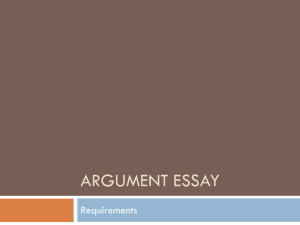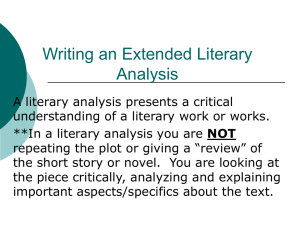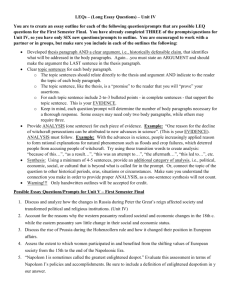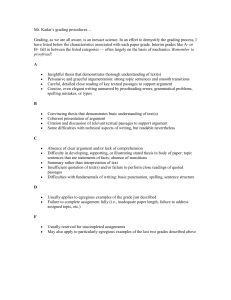Compare/Contrast Essay Guide: Updike Stories
advertisement
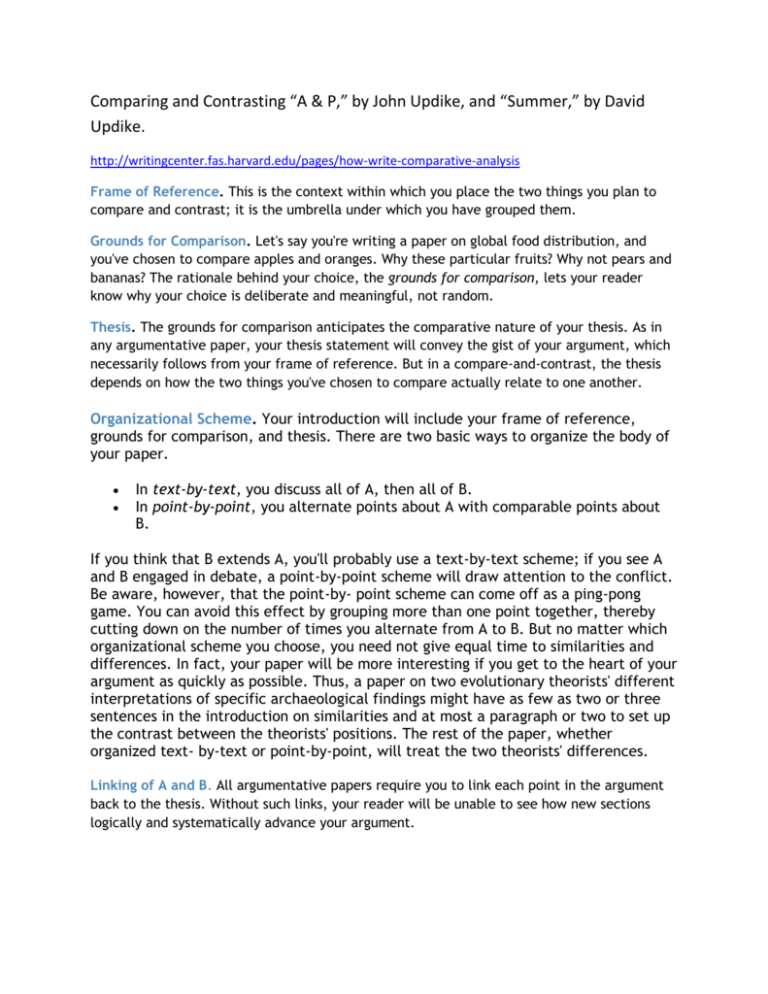
Comparing and Contrasting “A & P,” by John Updike, and “Summer,” by David Updike. http://writingcenter.fas.harvard.edu/pages/how-write-comparative-analysis Frame of Reference. This is the context within which you place the two things you plan to compare and contrast; it is the umbrella under which you have grouped them. Grounds for Comparison. Let's say you're writing a paper on global food distribution, and you've chosen to compare apples and oranges. Why these particular fruits? Why not pears and bananas? The rationale behind your choice, the grounds for comparison, lets your reader know why your choice is deliberate and meaningful, not random. Thesis. The grounds for comparison anticipates the comparative nature of your thesis. As in any argumentative paper, your thesis statement will convey the gist of your argument, which necessarily follows from your frame of reference. But in a compare-and-contrast, the thesis depends on how the two things you've chosen to compare actually relate to one another. Organizational Scheme. Your introduction will include your frame of reference, grounds for comparison, and thesis. There are two basic ways to organize the body of your paper. In text-by-text, you discuss all of A, then all of B. In point-by-point, you alternate points about A with comparable points about B. If you think that B extends A, you'll probably use a text-by-text scheme; if you see A and B engaged in debate, a point-by-point scheme will draw attention to the conflict. Be aware, however, that the point-by- point scheme can come off as a ping-pong game. You can avoid this effect by grouping more than one point together, thereby cutting down on the number of times you alternate from A to B. But no matter which organizational scheme you choose, you need not give equal time to similarities and differences. In fact, your paper will be more interesting if you get to the heart of your argument as quickly as possible. Thus, a paper on two evolutionary theorists' different interpretations of specific archaeological findings might have as few as two or three sentences in the introduction on similarities and at most a paragraph or two to set up the contrast between the theorists' positions. The rest of the paper, whether organized text- by-text or point-by-point, will treat the two theorists' differences. Linking of A and B. All argumentative papers require you to link each point in the argument back to the thesis. Without such links, your reader will be unable to see how new sections logically and systematically advance your argument. Areas of Focus A&P Comparison/Contrast Point of View, Main Idea, Situation, Tone Do they share similar perspectives? Literary Devices and Figurative Language Do they use similar devices, language, style, etc? Effect What impact do they have on their audience? Theme What themes do they share? Universal? Personal? Moral? Social? TO CONSIDER: REMEMBER: Characterization, plot, contrasts, tone, and point of view Summer Writing the Introductory Paragraph: Use this template when comparing/contrasting two stories. Both (1name the authors and the stories)(2reflect, indicate, show, display, demonstrate, reveal, disclose, consider, contemplate) (3topic – state what the stories have in common). Yet their (4characterization, plot, point of view, tone, etc.) are quite different. Whereas in (5first story), (6author) (7employs, projects, uses, develops, creates, illustrates, reveals) (8state the difference), in (9second story) (10author) (11employs, projects, uses, develops, creates, illustrates, reveals) (12state the difference). Both 1 _____________________________ and ____________________________ _2_____________________________3___________________________________ ______________________________________. Yet their _4______________ and _4____________________ are quite different. Whereas 5in ___________, 6 ____________7_____________________________________________________ ___ 8______________________________________________________________ _______________________________, in the 9 ________ 10 _____________ __11___________________________ __12_______________________________ ___________________________________________________________________ ____________________________________________________________. In a comparison/contrast essay, you must make some choices about your organizational strategy. Will you combine both stories in one paragraph or discuss each story in separate paragraphs? Outline your essay: Topic 1 _______________________________________________________________ Topic 2 _______________________________________________________________ Topic 3 _______________________________________________________________ Topic 4 _______________________________________________________________ Topic 5 _______________________________________________________________
